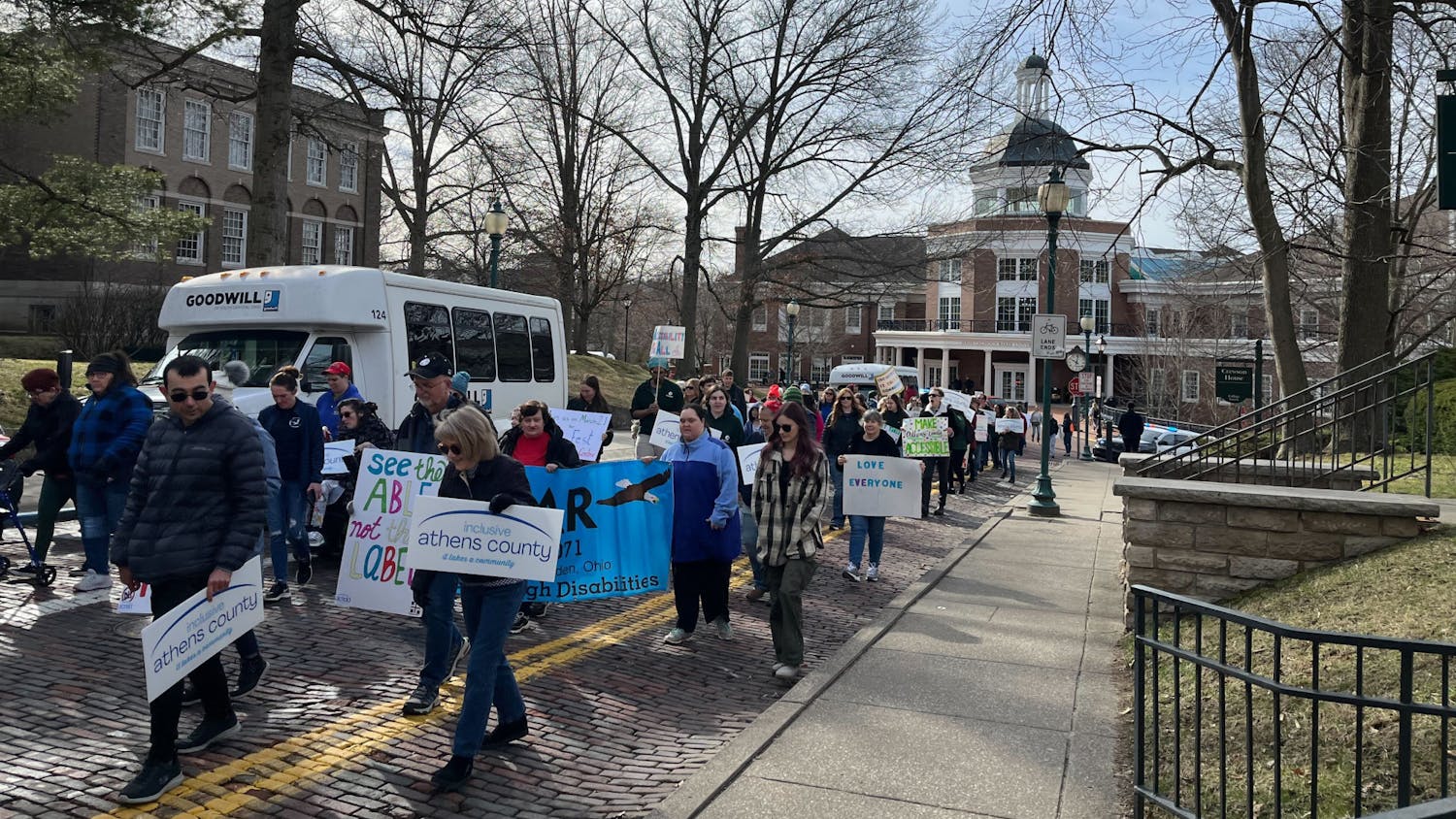The Ohio University School of Theatre presented the play Big Love on Tuesday in Baker Theater in Kantner Hall.
Big Love is an early-2000s romantic comedy play written by Charles. L. Mee prominently featuring three female protagonists who face both struggle and empowerment in a patriarchal setting. The three sisters, Lydia, Olympia and Thyona represent 50 total sisters who are forced to wed 50 of their male cousins. Despite these circumstances, the three ultimately determine their own fate.
The play discusses concepts such as love, gender roles, politics and feminism, to name a few. Corey Ragan, a second-year MFA student, directed the play. He considers these themes and their importance.
“Something thematically that we’ve talked about a lot is the expectations placed on both genders through the years,” Ragan said. “That’s kind of the jumping-off point for this show as far as I’m concerned. It’s also, you know, looking a lot at how all of these different conflicting groups of people who have very specific, intense identities can coexist on the stage and in this world together.”
Ragan also notes the freedom he was afforded by the playwright, Charles L. Mee.
“Charles Mee the playwright says on his website and encourages you to take liberties where you feel appropriate and produce it however you would like,” Ragan said. “A big thing for us is being able to honor the mood and the emotional core of everything that is on the page while still making it producible at Ohio University.”
While the show highlights the struggles of the female characters, it exemplifies their empowerment as well. Makaila McColley, a junior studying acting, explains her empowering experience portraying Olympia.
“It was an amazing time,” McColley said. “It was so much fun to work with everybody and experience Olympia, because I’ve never played a character like Olympia before. Olympia is really trying to navigate her relationships with her sisters while also trying to really give in to this part of herself that’s about love and sex and the beauty of all of that.”
Big Love effectively explores large concepts such as feminism through vibrant song, movement and technical elements.
Though the play was written in 2000, its themes still permeate the culture today. Society’s present social and political climate is reflected in Big Love.
Nate Ridgely, a senior studying acting who uses he/they pronouns, plays Leo in the production. They reflect on the parallels that can be drawn between the play and reality.
“Right now we’re in this really interesting what I call, third-wave feminism,” Ridgely said. “So this show being about women being treated almost like property to men and trying to find a voice… I think is something we’re feeling right now. I feel like it’s a really pertinent show for a lot of people to read or listen to, and I think it’s going to be for the foreseeable future, unfortunately… especially with the election and what our president’s doing right now.”
Equally as important as the thematic and dramatic elements of the play are the technical details. The play featured an assortment of music, vibrant lighting and overall striking visual and auditory choices. Ri Moodie, a senior studying theater and production management and stage management, greatly enjoyed these details.
“The technical elements were amazing,” Moodie said. “The lighting design from Emma Havranek and the sound design by Mason Sams made the show 10 times better.”






